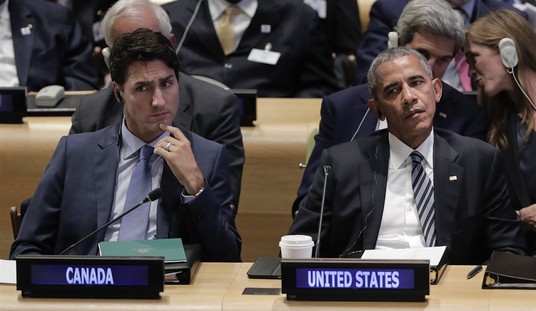On Oct. 7, Florida Surgeon General Joseph Ladapo shared an analysis his agency performed on COVID-19 mRNA vaccines. It showed an increased risk of cardiac death for men 18-39 who received the vaccine:
This analysis found that there is an 84% increase in the relative incidence of cardiac-related death among males 18-39 years old within 28 days following mRNA vaccination. With a high level of global immunity to COVID-19, the benefit of vaccination is likely outweighed by this abnormally high risk of cardiac-related death among men in this age group. Non-mRNA vaccines were not found to have these increased risks.
Based on these findings, Ladapo recommended males aged 18-39 not receive the mRNA COVID-19 vaccines. The new guidance he issued also noted that males over 60 had a 10% increased risk of cardiac-related death within 28 days of mRNA vaccination. It encouraged Floridians to discuss all the potential risks and benefits of the mRNA vaccine with their physician.
To communicate the findings, Ladapo shared the link to the analysis and the new guidance:
Today, we released an analysis on COVID-19 mRNA vaccines the public needs to be aware of. This analysis showed an increased risk of cardiac-related death among men 18-39. FL will not be silent on the truth.
Guidance: https://t.co/DcWZLoMU5E
Press Release: https://t.co/Y0r9yepi7F— Joseph A. Ladapo, MD, PhD (@FLSurgeonGen) October 7, 2022
Twitter briefly blocked the tweet with a notice that read, “Our current misleading information policies cover: synthetic and manipulated media, COVID-19, and civic integrity. If we determine a Tweet contains misleading or disputed information per our policies that could lead to harm, we may add a label to the content to provide context and additional information.” Twitter restored the tweet Sunday morning.
It is infuriating that Twitter had the nerve to censor the tweet in the first place, since the FDA acknowledged cardiac risks to men under 40 over a year ago. On Sept. 17, 2021, the FDA’s Vaccine and Related Biological Products Advisory Committee (VRBAC) met to discuss the approval of a booster dose of the mRNA vaccines for all Americans over 16. Doran Fink, M.D., deputy director of the clinical side of the FDA’s Division of Vaccines and Related Products Applications, provided some insight into the frequency of myocarditis.
Recommended: Regime Endgame? Protests Threaten Iran Oil Industry
The highest reporting rate in the Vaccine Adverse Event Reporting System (VAERS) was for young men between the ages of 16 and 17. Health claims data in the United States, which is more complete than VAERS, showed an incidence of approximately 1:5,000, mainly following the second dose of an mRNA vaccine. Florida recommended against healthy children receiving the COVID-19 vaccine in March 2022.
However, the cardiac risk to older adolescent boys was not the only information discussed. Dr. Arnold Monto, the acting committee chair, asked Fink if it was possible to determine at what age the myocarditis stopped being a problem. Fink’s complete answer is a prelude to the findings in Florida (emphasis mine):
“If you look at the healthcare claims data, you see that there is evidence of some attributable risk at all age groups, although, the older you get, the higher the risk of complications from COVID that offset the risk of myocarditis,” he said. “So, when you look at the balances of risk versus benefit, what we really start to see is risk of myocarditis being higher [than COVID-19] in males under age 40.”
It seems if the FDA says what Florida is saying, social media will not censor it. The video of the hearing is still on YouTube and carries this endorsement:

The risk-benefit analysis that Fink references is the fundamental assessment any healthcare provider should undergo before providing therapy. It is the basis for informed consent, to which every patient is entitled before accepting treatment. It is also precisely what the new guidance in Florida calls for. As President Donald Trump once said, the treatment can’t be worse than the disease. That used to be a primary consideration in medicine.
The FDA had information about cardiac risks for men under 40 over a year ago. The agency should have put out the guidance recommending a pause in vaccinating that age group at that point. Fink even noted no data was available regarding the risk of cardiac complications following the third dose of mRNA, which should have raised alarms when most cases of cardiac illness took place after the second dose. The agreement to recommend the boosters was not without controversy. It was preceded by two critical vaccine experts at the FDA resigning, reportedly because of political interference from the White House, ahead of the decision.
The data shared by Ladapo is distressing. But it should not have surprised anyone after the FDA’s finding, which was supported by data from Israel. Later, a preprint study by Kaiser Permanente Northwest showed that the FDA data significantly underestimated the risk of cardiac vaccine side effects. Using the insurer’s cohort of 12- to 39-year-old patients, the researchers followed the participants for 30 days after the second dose of mRNA.
Their study found cases of cardiac side effects that the data collected in the Vaccine Safety Database (VSD) used by the vaccine advisory committees for the CDC and FDA would have missed. The more detailed analysis found a risk for cardiac complications of 1 in 1860 for males 18-24 and 1 in 2650 for boys 12-17.
The “experts” who came out to criticize Ladapo’s move should have anticipated the possibility of fatal cardiac events, given the rates of cardiac events in the literature to date. Last September, the FDA experts even discussed the need to evaluate levels of troponin, a marker of myocarditis and other heart muscle damage. The committee was concerned with sub-clinical cases of cardiac illness that could cause heart damage.
Recommended: Trump DOJ Official: AMA’s Call to Prosecute Foes of Child Trans Surgery Is ‘Straight from the Soviet Playbook’
Following the restoration of his announcement tweet, Ladapo addressed his critics, pointing out the errors in their objections. In his Twitter thread, he corrects their erroneous assumptions about the study design and the data his department had access to. Ladapo also pointed out that even if the sample size was half of what it was, the signal would still be valuable. Then he takes a shot at the other “experts”:
Finally, is it really that hard to imagine that mRNA COVID-19 vaccines that increase myocarditis in young men by 10x, 20x, or 30x (see Karlstad et al, JAMA Cardiology, 2022) also increase the risk of cardiac death in that age group? Of course it’s not, and we all know that.
He was sassy enough to add a wink emoji. Dr. Ladapo is pretty clear-eyed about what he is up against and deserves credit for continuing to share information that goes against the narrative when it could keep the residents of Florida healthy.
All of this data also hints at a partial explanation for the unprecedented increase in deaths among working-age Americans reported by the insurance industry. At this point, it is up to the vaccine makers and pushers in our public health agencies to prove the new phenomenon, Sudden Adult Death Syndrome (SADS), is not related to mRNA vaccines. Perhaps it is also an answer to the unprecedented number of high-performing athletes who have dropped dead while competing. Dr. Marty Makary from Johns Hopkins University certainly thought it could be.
The FDA only increases suspicion when it refuses to anonymize, summarize, and report on the autopsies related to deaths entered in VAERS. The CDC was just forced to release the data from the V-Safe system. It is enough to make a person wonder if these agencies are more concerned with politics or public health.
LISTEN to the FDA discussion:









Join the conversation as a VIP Member